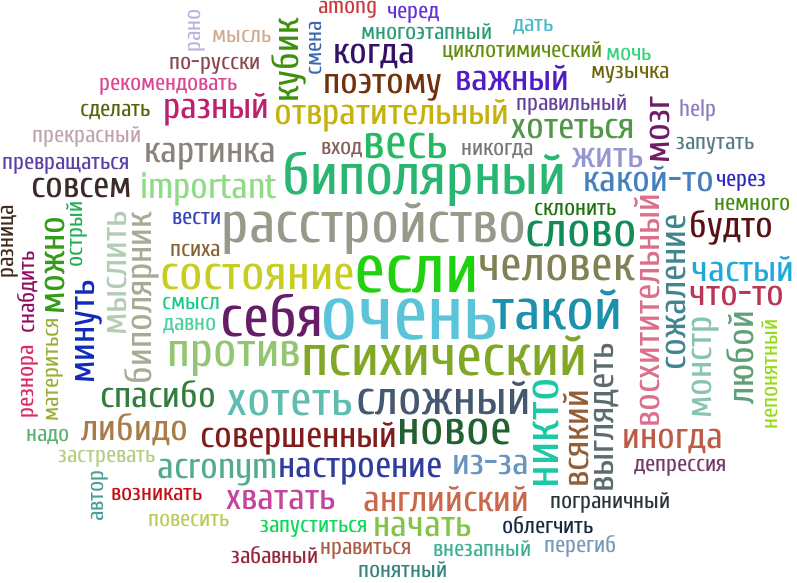Есть ли разница, кто "промышляет" домашним насилием - муж или жена? А также много других интересных вопросов и ответов по теме:
We recently published two controversial posts here on Blisstree,
Domestic Violence Debate: It’s Not Wrong for Women to Hit Men and the follow-up,
Women vs. Men: The Domestic Violence Double-Standard, but your heated comments told us that we weren’t quite finished with this often-taboo subject. However, I knew we needed a specific type of expert to weigh in on the tricky debates that surround issues of domestic violence. So, based on the recommendation of a clinical psychologist friend, I tracked down Dr. Linda G. Mills, who’s a professor of social work, public policy, and law at NYU, as well as a recognized authority on the subjects of violence and recovery. I asked her eight questions that challenge the typical perception of domestic violence (she prefers the term “intimate abuse”), and whether or not relationships and marriages can ever survive and thrive after such traumatic incidents. Here’s what the doctor ordered:
If a small woman hits her much bigger and stronger male partner with her hand – not very “hard” in the upper body, chest, or shoulder area – and doesn’t physically “hurt” him, do you consider that domestic violence?
Such an act may not physically hurt her partner (and may be called low-level violence or very-low-level violence), but it does contribute to a “dynamic of abuse.” Such a dynamic gives the partners permission to hit one another. (Why should she be entitled to hit, but he isn’t?, one might ask.) This, in turn, may be damaging to her — if he’s much larger and then hits her in retaliation, she can be seriously injured. Agreeing not to hit at all — regardless of size — makes the most sense.
Is domestic violence determined by the act itself, who commits the act, or the physical strength of who commits the act?
I don’t like the word domestic violence — it’s distant and removed from the kind of violence it describes. I prefer “intimate abuse” — it’s abuse (physical or emotional, something we often minimize and overlook), that’s between intimate partners.
Does any type of domestic violence perpetrated by a woman toward her male partner – no matter how seemingly harmless – always lead to more violence in the relationship?
Nothing is always true! Research suggests that women initiate violence just as often as men do, and half the cases of intimate abuse are a back-and-forth dynamic between the couple. What’s clear is that one partner’s violence gives the other partner “permission” to be violent (whether that materializes or not is another story) — and that is always ill-advised.
How do you reconcile the double-standard that exists in society (TV sitcoms, movies, singer Lionel Richie’s personal life, etc.) where it’s considered “funny” when a woman slaps or hits her male partner for being “naughty,” but if a man were to do that to a woman, he’d end up in jail?
It isn’t funny! If you’ve known male victims as I have, they’re devastated by those images on TV and in popular culture — it’s the minimizing of violence by women against men that prevents men from coming forward to seek help (because they fear they’ll be laughed at or not believed), and also promotes shame among male victims. As to the “double-standard,” I fear that this has given women permission to become more violent than men — some of the recent dating research suggests a trend that perhaps girls are now more likely to abuse their male partners than vice versa.
Can a relationship ever survive or overcome physical domestic violence?
Yes. But those who have experienced violence or abuse in their relationship and hope to stay together need to seek professional help to address it. If they do, they can recover from it —
IF (big if) they can come to understand the triggers for violence and learn to live without violence. This is not easy to do, as violence is often learned in childhood and calls for re-making how one addresses pain, loss, suffering, and a sense of helplessness. Like anything else that tears a relationship apart and to its core, violence is traumatic and enduring, and must be addressed in order to be incorporated in a healing way into a long-term relationship.
Are physical abuse and emotional abuse between partners essentially the same thing?
Victims of emotional and physical abuse often describe the scars of emotional abuse as much worse than the scars of physical violence. I’m not sure if that’s true for most people — physical abuse carries with it a public stigma that’s hard to shake. That said, both types of abuse are devastating and must be addressed if the relationship is meant to endure in a healthy way.
Other than self-defense, is there any circumstance where it’s okay for a woman to hit or slap her male partner?
No. Even in self-defense, it doesn’t make sense, but rather can contribute to making things worse. If one can walk away — that’s always the ideal. I’m not suggesting that someone shouldn’t protect themselves; all I’m saying is that this, too, can have a reaction.
Is there ever a circumstance where it’s okay for a man to hit or slap his female partner?
No, but I don’t see a difference between #7 and #8. Some women are larger than their male partners, and some larger women beat up on their smaller male partners. I don’t advise anyone to use violence to address violence. Rather, the couple needs to get professional treatment to address the underlying problem, or they should separate. And I advise getting help to separate more peacefully, because separation can often provoke more violence.
Linda G. Mills is Professor of Social Work, Public Policy, and Law at New York University. She also serves as Executive Director of NYU’s Center on Violence and Recovery. Mills recently co-directed and co-produced the award-winning documentary Auf Wiedersehen: ‘Til We Meet Again, a film that explores the intergenerational transmission of trauma from the Holocaust to 9-11. In addition, she is NYU’s Senior Vice Provost for Undergraduates in the Global Network University, and Associate Vice Chancellor for Admissions and Financial Support for NYU Abu Dhabi.
Post from:
BlissTree
Here's How Your Marriage or Relationship Can Survive Domestic Violence


